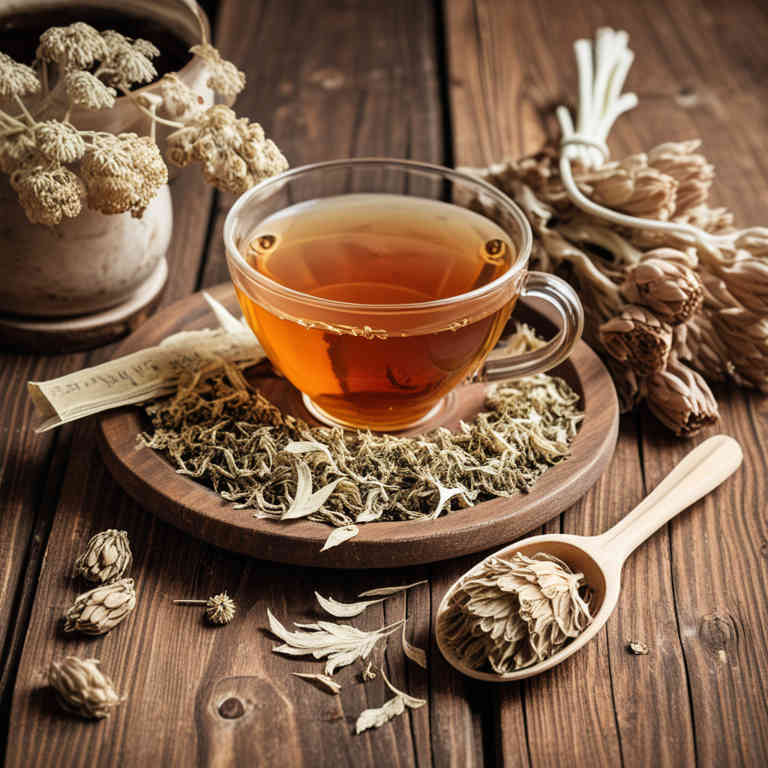Angelica sinensis tea for medicinal use

Angelica sinensis tea is a traditional herbal preparation made from the dried roots of the Angelica sinensis plant, also known as dong quai.
It has been used for centuries in Chinese herbal medicine to support women's health, particularly for menstrual regulation and hormonal balance. The tea is often consumed to alleviate symptoms of menopause, such as hot flashes and mood swings, and to promote blood circulation. It is also believed to enhance vitality and support the immune system.
In herbalism, Angelica sinensis tea is valued for its adaptogenic properties and is commonly used in formulations for overall wellness and reproductive health.
Uses
Angelica sinensis tea has been used to support women's health for centuries in traditional Chinese medicine.
Historically, it was valued for its ability to regulate menstrual cycles, alleviate menopausal symptoms, and boost blood production. In traditional practices, it was also used to treat anemia, improve circulation, and enhance fertility. Modern research suggests it may contain compounds with antioxidant and anti-inflammatory properties.
Today, it is popular as a natural remedy for hormonal balance and overall wellness.
Benefits
Angelica sinensis tea has health benefits such as improving blood circulation, enhancing immunity, and supporting women's health.
It is known to help alleviate menstrual discomfort and reduce symptoms of menopause. This herbal tea may also promote skin health and aid in reducing fatigue. Additionally, it is believed to have antioxidant properties that protect the body from cellular damage.
Angelica sinensis tea is often used in traditional Chinese medicine for its overall wellness benefits.
Constituents
Angelica sinensis tea active constituents include ferulic acid, ligustilide, and adenosine, which contribute to its various health benefits.
Ferulic acid is a powerful antioxidant that helps reduce oxidative stress and inflammation in the body. Ligustilide has been shown to improve blood circulation and may support cardiovascular health. Adenosine plays a role in promoting relaxation and may help alleviate symptoms of anxiety and stress.
Together, these compounds make Angelica sinensis tea a popular herbal remedy for improving overall well-being.
Preparation
To make Angelica sinensis tea, begin by gathering dried Angelica sinensis root, also known as dong quai.
Wash the root thoroughly and cut it into small pieces to enhance flavor and infusion. Place the pieces in a teapot or heatproof container and pour freshly boiled water over them. Let the tea steep for 10 to 15 minutes, then strain and serve.
This herbal tea is often used in traditional medicine for its purported benefits in supporting women's health and circulation.
Side Effects
Angelica sinensis tea may lead to gastrointestinal discomfort, such as nausea, bloating, or diarrhea, especially when consumed in large amounts.
It can also cause allergic reactions in individuals sensitive to plants in the Apiaceae family, which includes parsley and carrots. Long-term use may interfere with blood clotting, increasing the risk of bruising or bleeding. Some studies suggest it may affect hormone levels, potentially leading to menstrual irregularities or other hormonal imbalances.
Additionally, it may interact with certain medications, such as blood thinners or anticoagulants, requiring caution and medical supervision.